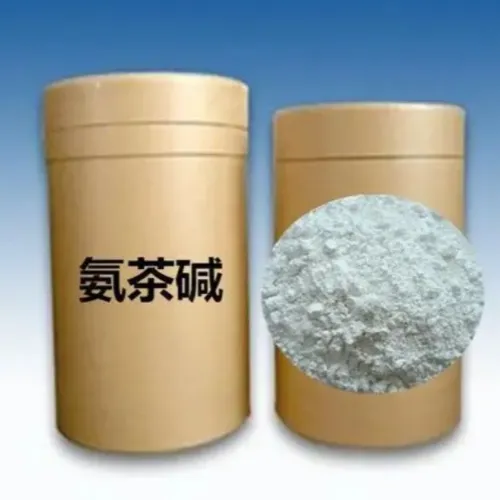Warning: Undefined array key "title" in /home/www/wwwroot/HTML/www.exportstart.com/wp-content/themes/1198/header.php on line 6
Warning: Undefined array key "file" in /home/www/wwwroot/HTML/www.exportstart.com/wp-content/themes/1198/header.php on line 7
Warning: Undefined array key "title" in /home/www/wwwroot/HTML/www.exportstart.com/wp-content/themes/1198/header.php on line 7
Warning: Undefined array key "title" in /home/www/wwwroot/HTML/www.exportstart.com/wp-content/themes/1198/header.php on line 7
- Afrikaans
- Albanian
- Amharic
- Arabic
- Armenian
- Azerbaijani
- Basque
- Belarusian
- Bengali
- Bosnian
- Bulgarian
- Catalan
- Cebuano
- China
- China (Taiwan)
- Corsican
- Croatian
- Czech
- Danish
- Dutch
- English
- Esperanto
- Estonian
- Finnish
- French
- Frisian
- Galician
- Georgian
- German
- Greek
- Gujarati
- Haitian Creole
- hausa
- hawaiian
- Hebrew
- Hindi
- Miao
- Hungarian
- Icelandic
- igbo
- Indonesian
- irish
- Italian
- Japanese
- Javanese
- Kannada
- kazakh
- Khmer
- Rwandese
- Korean
- Kurdish
- Kyrgyz
- Lao
- Latin
- Latvian
- Lithuanian
- Luxembourgish
- Macedonian
- Malgashi
- Malay
- Malayalam
- Maltese
- Maori
- Marathi
- Mongolian
- Myanmar
- Nepali
- Norwegian
- Norwegian
- Occitan
- Pashto
- Persian
- Polish
- Portuguese
- Punjabi
- Romanian
- Russian
- Samoan
- Scottish Gaelic
- Serbian
- Sesotho
- Shona
- Sindhi
- Sinhala
- Slovak
- Slovenian
- Somali
- Spanish
- Sundanese
- Swahili
- Swedish
- Tagalog
- Tajik
- Tamil
- Tatar
- Telugu
- Thai
- Turkish
- Turkmen
- Ukrainian
- Urdu
- Uighur
- Uzbek
- Vietnamese
- Welsh
- Bantu
- Yiddish
- Yoruba
- Zulu
Oct . 05, 2024 05:04 Back to list
Understanding the Benefits and Uses of Xylitol in Everyday Life
Understanding Xylitol A Comprehensive FAQ
Xylitol, a sugar alcohol, has gained popularity as a sugar substitute in recent years due to its unique health benefits. This article addresses some frequently asked questions about xylitol, providing insights into its uses, benefits, and safety.
What is Xylitol?
Xylitol is a naturally occurring sugar alcohol found in many plants, but it is commonly derived from birch bark or corn cobs for commercial use. It has a sweetness similar to that of sucrose (table sugar) but contains fewer calories—about 2.4 calories per gram compared to sugar’s 4 calories. This makes it a popular choice for those looking to reduce calorie intake.
How is Xylitol Used?
Xylitol is often found in various products, including sugar-free gum, candies, toothpaste, and mouthwash. Its sweet taste makes it an excellent sugar substitute for baking and cooking. Additionally, xylitol is known for its ability to inhibit the growth of bacteria that cause tooth decay, making it a favored ingredient in dental care products.
What are the Health Benefits of Xylitol?
One significant advantage of xylitol is its positive effect on dental health. Studies have shown that xylitol can help reduce cavity-causing bacteria in the mouth, leading to fewer cavities and improved overall oral hygiene. Additionally, xylitol has a low glycemic index, making it a suitable option for people with diabetes as it does not cause rapid spikes in blood sugar levels.
xylitol faq

Moreover, xylitol may have benefits for respiratory health. Preliminary research suggests that it can help reduce the risk of ear infections in children and may support sinus health by maintaining moisture in the nasal passages.
Is Xylitol Safe?
Xylitol is generally recognized as safe for human consumption. However, consuming large amounts may lead to digestive issues, such as bloating, gas, and diarrhea, especially in individuals unaccustomed to sugar alcohols. It is advisable to start with small amounts to assess tolerance.
It is crucial to note that while xylitol is safe for humans, it is highly toxic to dogs. Even small quantities can cause severe health issues in pets, including insulin release that can lead to hypoglycemia. Pet owners must keep products containing xylitol out of reach and be aware of its potential dangers.
How Should Xylitol Be Stored?
Like other sweeteners, xylitol should be stored in a cool, dry place, away from direct sunlight. Proper storage ensures its quality and longevity, allowing consumers to enjoy its benefits over time.
Conclusion
Xylitol is a versatile sugar substitute that offers numerous health benefits, particularly for dental health. While it is safe for human consumption, moderation is key, and pet owners should exercise caution. By incorporating xylitol into your diet mindfully, you can enjoy its sweetness without the drawbacks of traditional sugar. Whether you’re looking to improve your dental hygiene or reduce your calorie intake, xylitol is a valuable addition to a balanced lifestyle.
Latest news
-
Certifications for Vegetarian and Xanthan Gum Vegetarian
NewsJun.17,2025
-
Sustainability Trends Reshaping the SLES N70 Market
NewsJun.17,2025
-
Propylene Glycol Use in Vaccines: Balancing Function and Perception
NewsJun.17,2025
-
Petroleum Jelly in Skincare: Balancing Benefits and Backlash
NewsJun.17,2025
-
Energy Price Volatility and Ripple Effect on Caprolactam Markets
NewsJun.17,2025
-
Spectroscopic Techniques for Adipic Acid Molecular Weight
NewsJun.17,2025

